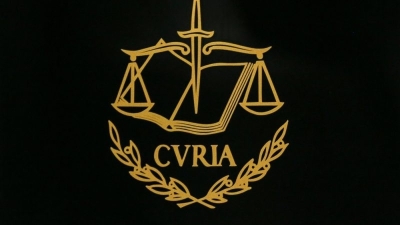The surprising threat to small and medium-sized European companies

There is a surprising threat looming over the horizon for many European SMEs if EU policymakers don’t urgently act. You might not spend a huge amount of time thinking about standard essential patent licensing, but it is something that small and medium-sized European companies increasingly have to contend with.
When companies contribute their innovative ideas to the development process of international standards, these are often protected by so-called “standard-essential patents (SEPs)”. In most cases, it is almost impossible to develop innovative products without adhering to the relevant standards that the industry has agreed upon.
If these standards are used, licences must be obtained from the owners of the SEPs. Usually, when contributing their patents to the standardisation process, the owners promise to charge ‘fair, reasonable and non-discriminatory’ (FRAND) royalties to those wishing to use it.
But here is where the rubber meets the road. The current system is prone to abuse – especially to the detriment of small and medium-sized companies. Companies facing this issue have to undertake negotiations in smoke-filled room: with zero or little information about the prices offered, no guarantee the offer is comparable to the rate offered to your competitor, and it is a system that stacks the deck in the favour of the rights holder.
In addition, the lack of transparency of the current system means that it is not possible to determine whether patents are really essential for the standards, or only in lengthy processes. However, it often turns out that many patents are invalid or do not comply with the standard at all. Furthermore, there is no standardised system regarding the possibility of injunctions (stopping the sale of products) if the parties involved do not reach an agreement on FRAND rates.
We are not talking about using someone else’s ideas for free. No-one objects to paying royalties for using standardised technology. The crux of the issue is about ensuring that the system is fair; companies wanting access to standards need to be able do so on terms that are transparent and predictable. What doesn’t help anyone are injunctions and lawsuits that unnecessarily consume resources and encourage unfair negotiations.
Fortunately, there is an EU regulation proposal on the table that would bring more transparency and predictability to the market by creating a better registration system, a process for checking that the patents are actually essential, setting a non-binding opinion on the price for using a standard, and facilitating parties to negotiate through conciliation without the threat of injunctions.
It is not surprising, that the companies benefiting from the status quo want to delay and ultimately reject the regulation.
That’s unfortunate because we know from our own experience how much the system surrounding SEPs needs to be improved: Founded in 1986 in Berlin, AVM is one of Europe’s leading manufacturers of equipment for broadband connection and digital home. Since the beginning we have focused 100% of our R&D and product development in Germany. We are a quintessential European business, forming an integral part of the Mittelstand.
But companies like ours are challenged by non-European patent holders, who in the last years have turned to aggressively monetising their portfolios of SEPs. These attacks are an unnecessary burden for us, and are the result of a system for licensing SEPs in the EU that is vulnerable to abuse and leverages the threat of market exclusion to force companies into paying royalties that are far above what is fair and reasonable. If the system does not change, the global competitiveness of small and medium-sized European technology companies will be significantly impaired.
We have been closely monitoring the discussions for a regulation on SEPs and are confident that the system the European Commission has proposed can support smaller European companies to compete and innovate. The regulation will provide much of the transparency and predictability that the market so desperately needs right now and will establish a process that can support firms to reach an agreement on terms that are fair.
Europe cannot afford a delay. Speaking on behalf of a European company that is facing the considerable disadvantages of the status quo, this regulation cannot come sooner. The current system is unclear and allows large dominant firms to exploit particularly small and medium-sized companies. It is unfortunate, but not very surprising that those who profit most from the current unbalanced status quo want to oppose any change that will bring fairness and create a level playing field for companies in Europe, particularly SMEs that are so crucial to Europe’s economy and growth.
To be, once again, absolutely clear: we do not object to paying royalties for using standardised technology,- but, in line with the promises that these companies have made to the standards development organisations, they must be “fair, reasonable, and non-discriminatory”. This is exactly what the SEP regulation will deliver on by balancing the interests of both sides.
Our plea to the European institutions is to also listen to the voices of those European companies that just want to get on with the job of producing, manufacturing, and innovating. The right course for the future of technological innovation in Europe and beyond can be set now – let’s not let this opportunity pass by.



